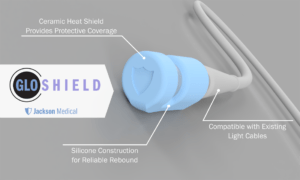
Anemia, defined as low blood hemoglobin levels, affects over two billion people annually and is typically diagnosed and monitored with a complete blood count performed during a clinic or hospital visit. For patients that need to regularly monitor hemoglobin, these frequent medical visits can be both time consuming and costly.
To offer patients a simpler, point-of-care option, Erika Tyburski, BS, a graduate of Georgia Tech’s Biomedical Engineering Program & Wilbur Lam, MD, PhD, a clinical pediatric hematologist and Associate Professor of Biomedical Engineering at Georgia Tech and Emory University, invented the AnemoCheck for rapid, inexpensive, disposable point-of-care hemoglobin determination. Each test requires a small drop of blood from a finger stick and takes two minutes to provide a visual, color-based result that correlates with blood hemoglobin level.
The AnemoCheck team received an award from the Coulter Translational Program during our 2015-2016 funding cycle which enabled them to conduct product design, clinical and regulatory testing, and compilation of an FDA 510(k) premarket notification submission. In September 2017, the first generation AnemoCheck test was cleared by the US Food & Drug Administration for clinical use.
The team founded Sanguina, LLC in 2014, and is currently developing the second generation, over-the-counter version of the AnemoCheck. This updated version offers simple, home-based anemia testing for virtually everyone – ranging from chronically anemic patients and cancer patients to the general population at risk for anemia such as pregnant women, young children, and the elderly.
To become a beta tester or learn more about their product, visit sanguina.com.






You must be logged in to post a comment.